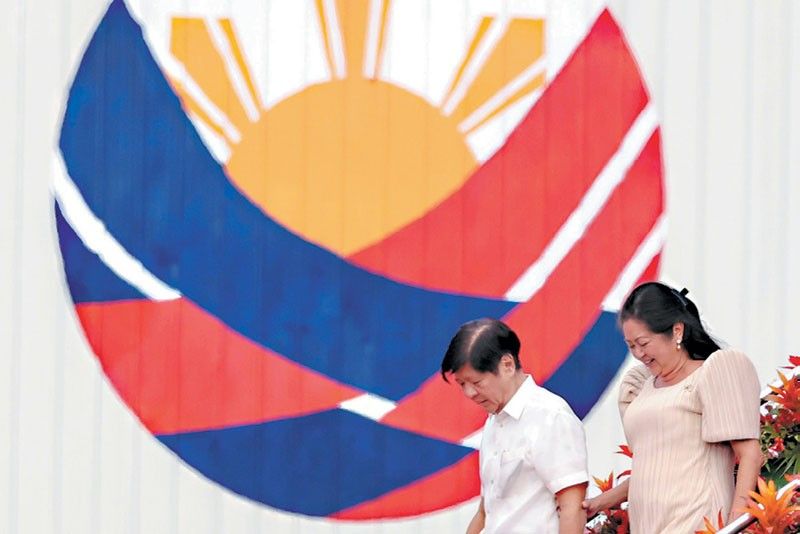Trip to Germany, Czech Republic strengthened ties – Marcos

MANILA, Philippines — President Marcos returned to Manila yesterday after his back-to-back visits to Germany and the Czech Republic that he said strengthened bonds and created more opportunities for cooperation.
In his arrival statement, Marcos said the overseas trips allowed him to discuss with German and Czech leaders ways of boosting bilateral cooperation in various fields as well as engage with investors eager to expand their ventures to the Philippines.
“Overall, I am confident that these visits to Germany and the Czech Republic have strengthened our bonds with these two countries in Central (and Western) Europe and created opportunities for cooperation and prosperity,” the President said.
The plane carrying Marcos and his delegation landed at the Villamor Airbase at 3:11 p.m.
Marcos noted that his visit to Berlin was part of the 70th anniversary of Philippine-German diplomatic ties.
The Philippines and the Czech Republic are also celebrating 50 years of bilateral relations, he added.
Marcos said upholding the rule of law, promoting a rules-based international order and enhancing the cooperation in peace and development, defense cooperation, maritime cooperation, trade and investment including in critical raw materials and renewable energy, climate change and labor were discussed during his meeting with Chancellor Olaf Scholz in Germany.
He added that he had emphasized the Philippines’ commitment to a clean energy future and invited German investments in green energy initiatives.
“Chancellor Scholz also remarked on the crucial role of our overseas Filipino workers in Germany and once again, we highlighted their contributions to the economy and to the society of Germany,” the President said.
$4 billion deals
Marcos reported that his visit to Germany yielded business agreements for projects with a total value of $4 billion in renewable energy, manufacturing, health care, innovation and startups, IT-BPM, minerals processing, agriculture and aerospace.
He also mentioned his discussion with Lufthansa Technik, the expansion plan of which entails the building of a second hangar in Clark worth $150 million or P8 billion.
Marcos also thanked technology conglomerate Siemens for its “unwavering” support and confidence in Filipino talent and its continuing commitment to support the capacity building of Filipino technical personnel in health care.
He also cited the business agreements he received in Prague that involve key sectors like semiconductors and IT-BPM.
Germany and the Czech Republic, the President added, have also expressed their support for the resumption of negotiations on the proposed free trade agreement (FTA) between the Philippines and the European Union (EU).
“In this regard, I authorized (Trade) Secretary Fred Pascual to make the necessary follow-up of the progress of the FTA discussions at the EU headquarters in Brussels where he is presently,” Marcos said.
Speaker Martin Romualdez, who was part of Marcos’ retinue in his latest European visit, said the President’s trip was “immensely beneficial” to the Philippines.
In a statement, Romualdez noted that trips demonstrate the “vital importance of personal engagement with fellow leaders.”
He added the solid support expressed by leaders of the two countries for the protection of Philippine sovereignty and rights in the West Philippine Sea, billions of dollars in investment deals clinched and agreements signed would also create thousands of jobs for Filipinos.
“The immensely beneficial outcomes of President Marcos’ trip to Germany and the Czech Republic starkly demonstrate the crucial rule of personal interaction between leaders of nations in enhancing bilateral relations and advancing national interest,” he maintained.
He said face-to-face interactions allow leaders to development “personal relationships and build trust with each other.”
“Trust is a fundamental component of international relations, and personal interactions can help leaders understand each other’s perspectives, intentions and concerns better,” he added. — Sheila Crisostomo
- Latest
- Trending




























